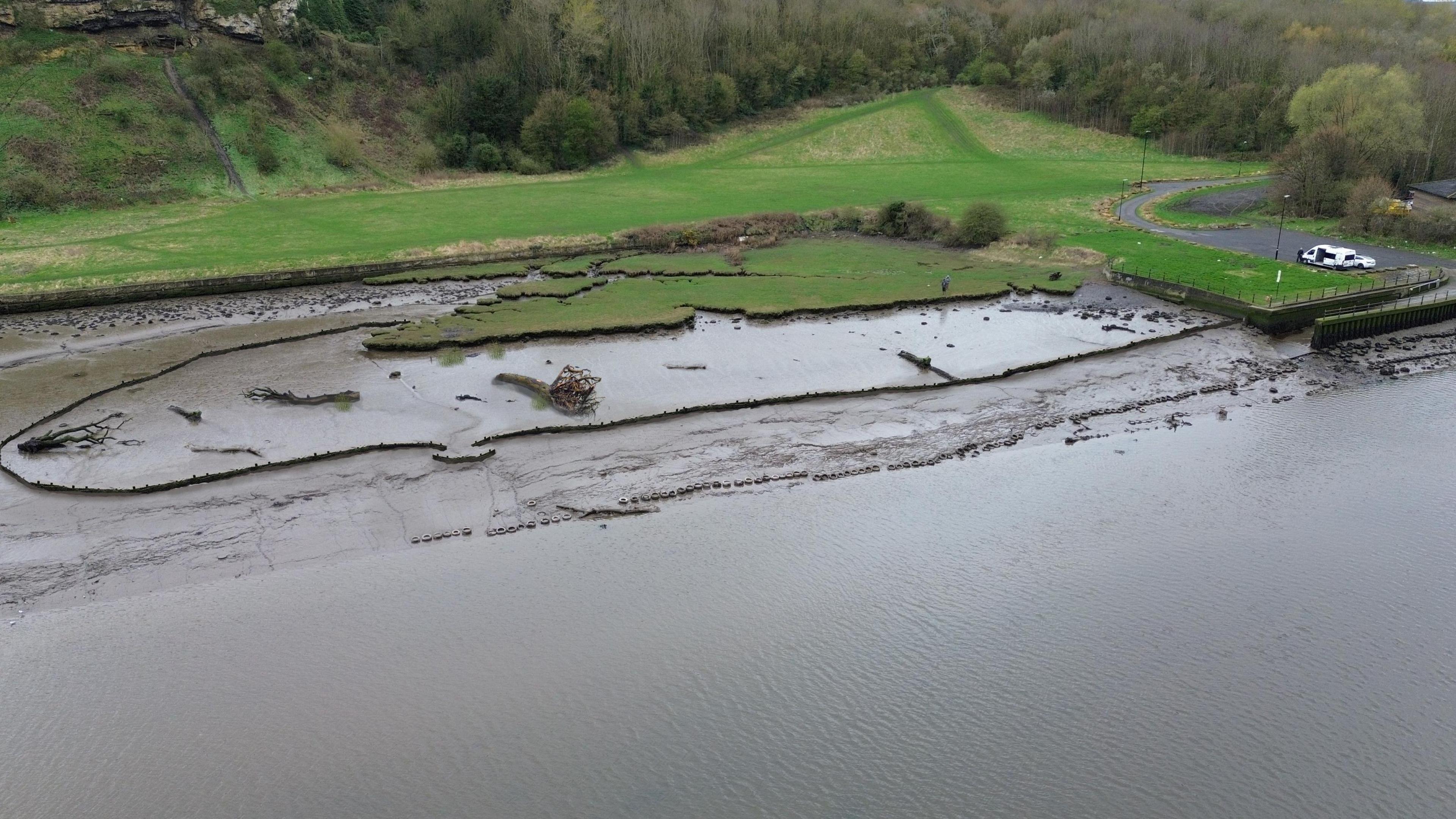Centuries of river re-routing to be reversed
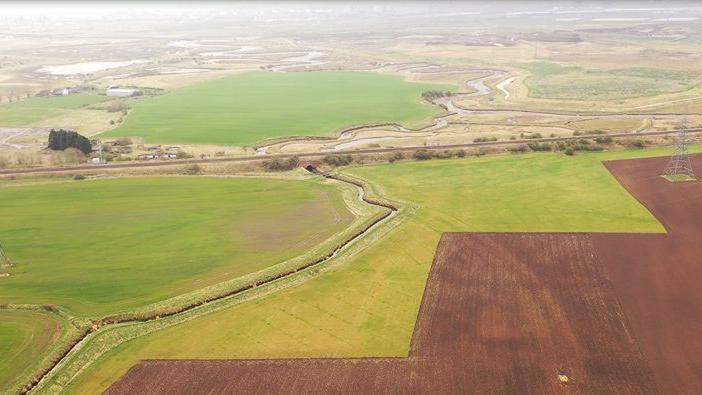
Work has started on restoring Greatham Beck to its traditional course
- Published
Work has begun to restore a beck's traditional course after centuries of industrial changes altered its route.
The channels of Greatham Beck, in Teesside, will be re-opened to tidal influence and the re-establishment of natural marshland will be encouraged - without increasing flood risk.
The Environment Agency (EA) project is the latest stage of the Tees Tidelands Programme which aims to help the River Tees estuary adapt to climate change.
Matthew Rountree, EA project manager, said returning Greatham Beck to its natural form would "restore balance to the estuary and allow the tide to return to areas lost to development".
Crucial habitat
Northumbrian Water has contributed £2m towards the Greatham Marsh project.
The changes to Greatham Beck will allow migratory fish to return to the waterway where they have not been seen for decades.
The scheme will create or enhance 21.3 hectares (52 acres) of saltmarsh and mudflat, providing crucial habitat for internationally important species including curlews and avocets.
Saltmarsh plants and mud will hold nutrients that would otherwise enter Seal Sands, near Stockton, and risk negatively impacting this internationally important feeding area for birds.
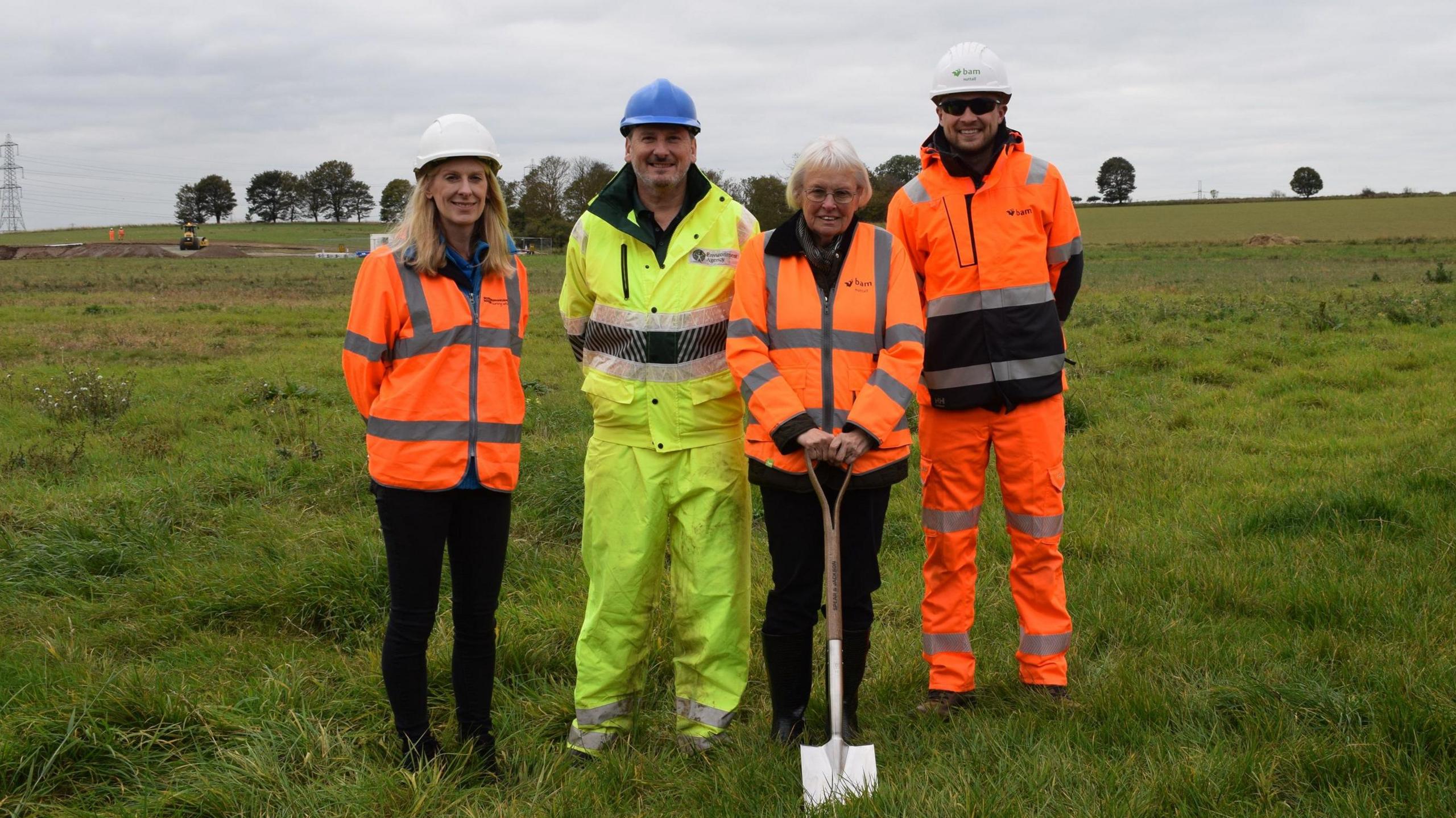
The scheme will create or enhance existing saltmarshes
Mr Rountree said the River Tees estuary sits at the heart of one of the north-east's industrial centres.
"While this industry is vital for jobs and the economy, human activity within the estuary has led to the loss of 90% of the intertidal habitat that once existed," he said.
"This disconnection between industry and nature has caused a drastic decline in biodiversity and increased vulnerability to climate change impacts."
The project will also see the planting of 1.5km (0.9m) of species-rich native hedgerow and ecologically valuable treeline.
Follow BBC Tees on X,, external Facebook, external, Nextdoor and Instagram, external.
Get in touch
Do you have a story suggestion for BBC Tees?
Related topics
More stories like this
- Published4 June
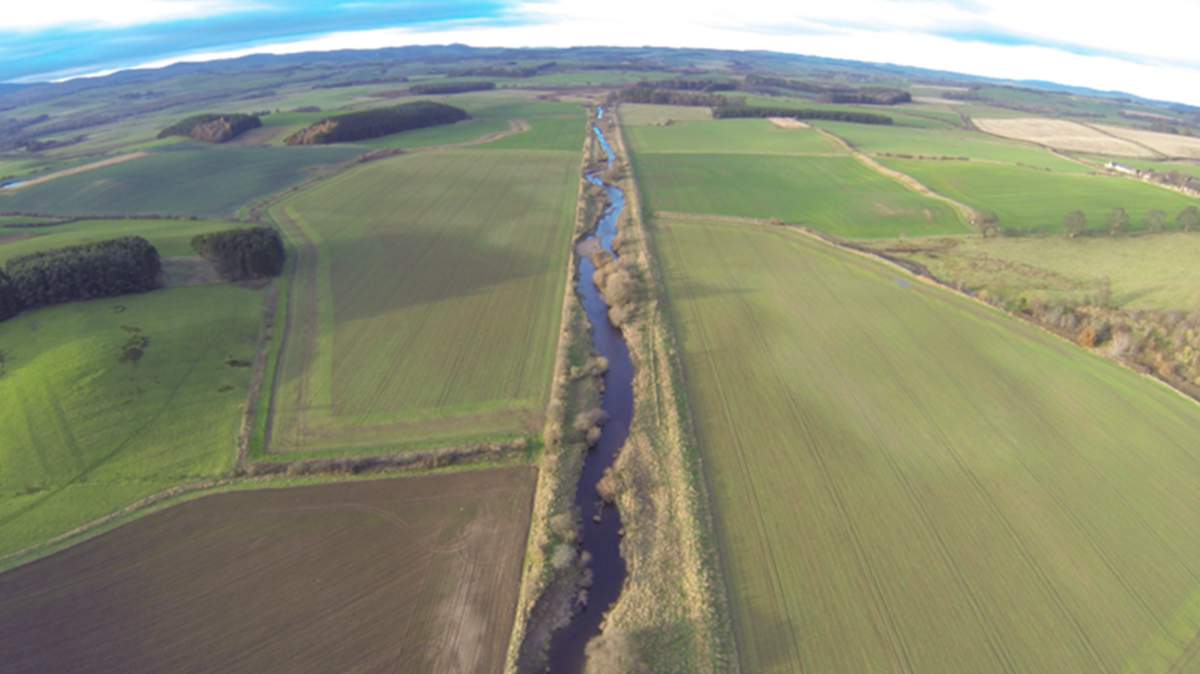
- Published16 March
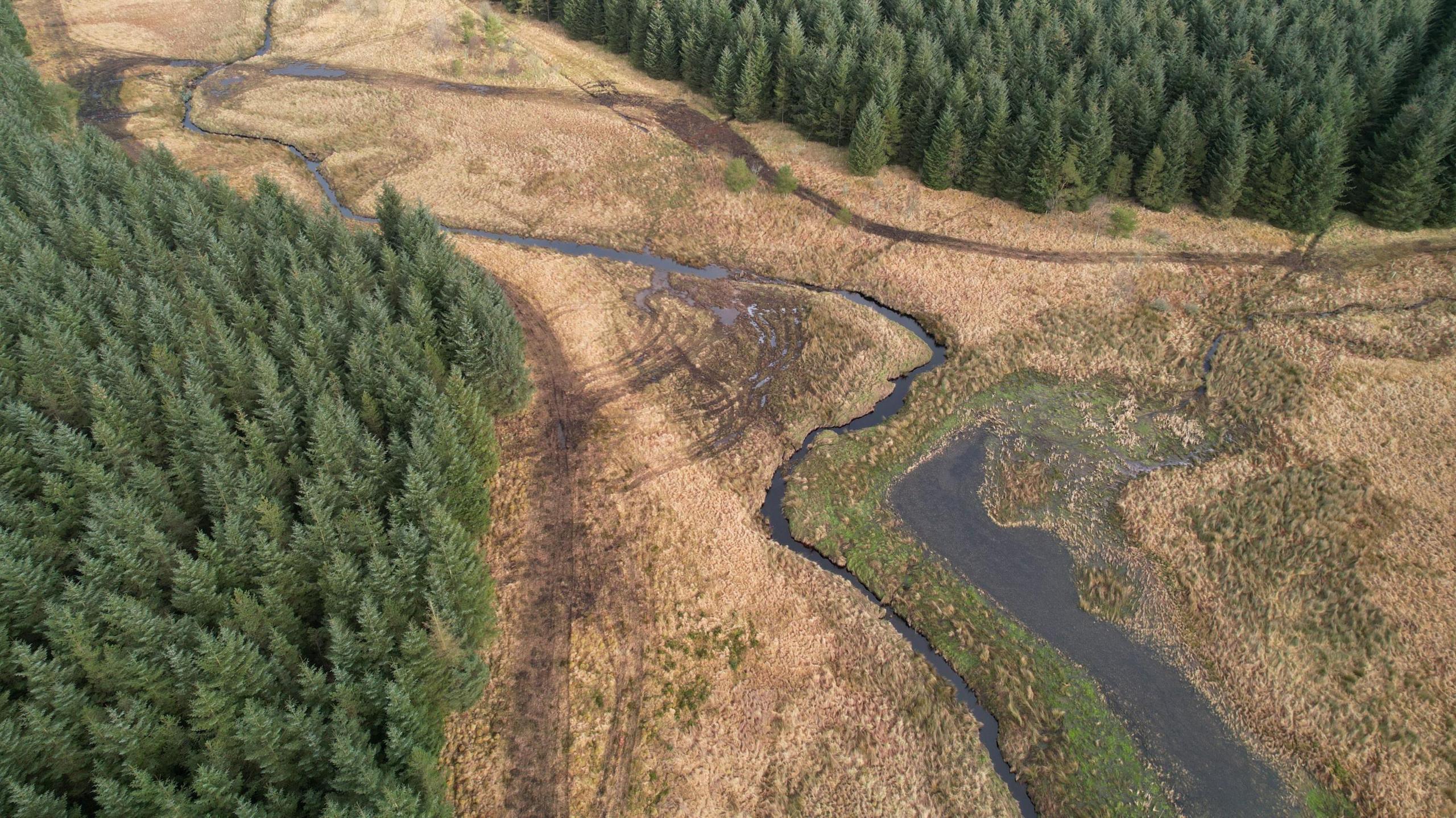
- Published11 November 2024
